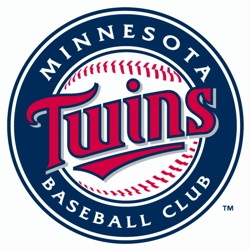 We saw two high-profile ballpark changes in the past week, as the Minnesota Twins took down a statue of former team owner Calvin Griffith at Target Field, while the University of Cincinnati will remove Marge Schott’s name from the school’s ballpark.
We saw two high-profile ballpark changes in the past week, as the Minnesota Twins took down a statue of former team owner Calvin Griffith at Target Field, while the University of Cincinnati will remove Marge Schott’s name from the school’s ballpark.
The removal of the Calvin Griffith statue did not come after protests or calls to action, but the team found it unacceptable to honor the man who, while bringing MLB to Minnesota in 1961, later became best known for racist comments in a speech delivered in Waseca in 1978. Here’s the statement from the Twins:
“When we opened Target Field in 2010 in conjunction with our 50th season in Minnesota, we were excited and proud to welcome fans to our ‘forever ballpark.’ As such, we wanted to pay permanent tribute to those figures and moments that helped shape the first half-century of Minnesota Twins baseball – including a statue of Calvin Griffith, our former owner and the man responsible for moving the franchise here in 1961.
“While we acknowledge the prominent role Calvin Griffith played in our history, we cannot remain silent and continue ignoring the racist comments he made in Waseca in 1978. His disparaging words displayed a blatant intolerance and disregard for the Black community that are the antithesis of what the Minnesota Twins stand for and value.
“Our decision to memorialize Calvin Griffith with a statue reflects an ignorance on our part of systemic racism present in 1978, 2010 and today. We apologize for our failure to adequately recognize how the statue was viewed and the pain it caused for many people – both inside the Twins organization and across Twins Territory. We cannot remove Calvin Griffith from the history of the Minnesota Twins, but we believe removal of this statue is an important and necessary step in our ongoing commitment to provide a Target Field experience where every fan and employee feels safe and welcome.
“Past, present or future, there is no place for racism, inequality and injustice in Twins Territory.”
Here’s an interesting take on Griffith and his legacy from Rod Carew.
In Ohio, two baseball players led the charge to remove Schott’s name from the ballpark and another public space. Money from the Marge and Charles Schott Foundation two years after her death helped build the ballpark, but there was never a naming-rights agreement in the formal sense. While Schott has a legacy as a community leader and philanthropist, as owner of the Cincinnati Reds, she was also known as being virulently racist. Her disparaging remarks about women, Asian-Americans, gays, blacks and Jews were widely quoted in the 1990s, leading to her being suspended for a year by Major League Baseball for a season from the Reds’ day-to-day operations, as well as being levied a $250,000 fine; positive comments about Adolph Hitler earned her a second suspension in 1998. But in the end, the National League stopped short of the ultimate penalty: forcing her to sell the team. She did so anyway soon after the second suspension ended . Her gift that enabled Marge Schott Stadium came afterwards.
Yesterday the University of Cincinnati Board of Trustees unanimously voted to remove her name from the ballpark.
“Marge Schott’s record of racism and bigotry stands at stark odds with our University’s core commitment to dignity, equity and inclusion,” President Neville G. Pinto said in a statement. “My recommendation to the board to remove her name is grounded in the firm belief that speaking out against exclusion is as essential as speaking up for inclusion. I hope this action serves as an enduring reminder that we cannot remain silent or indifferent when it comes to prejudice, hate or inequity. More than ever, our world needs us to convert our values into real and lasting action.”
These are the latest instances of teams and universities confronting racist legacies. In April 2018 Boston city officials approved the renaming of Yawkey Way back to its original name, Jersey Street, after the Boston Red Sox petitioned to change it as a way to distance the team from former owner Tom Yawkey’s racist past. Yawkey’s legacy on the racial front is well-documented. The team was the last in Major League Baseball to integrate; it took Yawkey until 1959 to sign a black ballplayer, Pumpsie Green. In the meantime the Red Sox explicitly passed both on Jackie Robinson and Willie Mays, and Boston has never been regarded as a welcoming place for black players — even those wearing Red Sox uniforms. (Alas, the famous Morse code remains.)
And, of course, there was the multiyear struggle to remove Chief Wahoo from Cleveland Indians branding, It took until 2018 for the team to downplay Chief Wahoo on team uniforms, branding and marketing. However, the idea of dropping the logo completely had previously been met with some reluctance from Indians chairman and chief executive Paul Dolan, even as Major League Baseball commissioner Rob Manfred increased pressure on the team to get rid of Chief Wahoo.
As we noted last week when writing about the Schott situation: We expect to see plenty more debates about facility names and branding in the athletics world.
RELATED STORIES: Examining tangled legacies at sports facilities in a #BLM world
